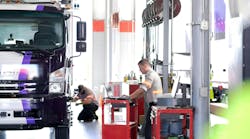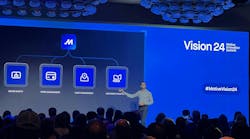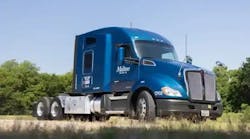“The changes to trucks required to meet 2002 emission levels pale in comparison to what’s coming in 2007,” he said during a session at TMC’s annual meeting and expo.
Strawhorn said OEMs have modified engines to meet the 2002 benchmark; aftertreatment systems enter the picture in 2007. Aftertreatment devices, he says, will require more wiring and periodic cleaning, and will also require maintenance and replacement.
Don Kopinski, senior project manager for EPA’s national vehicle fuel and emissions laboratory, said truckers should expect to pay $3,000 for emissions control technology in the short-term to meet 2007 targets. Those costs should drop to $1,900 over the long term.
Strawhorn added, however, that life cycle costs for 2007 grade engines could increase as much as $4,000 per unit.
On top of those costs, truckers will have to buy low sulfur diesel fuel starting in 2006. With 15 ppm of sulfur versus the 300 to 500 levels in today’s diesel fuel, low-sulfur diesel is a critical piece of the aftertreatment puzzle. Sulfur poisons aftertreatment systems, said Kopinski, so it needs to be cut back in the fuel.
The EPA believes low-sulfur diesel will cost 5-cents/gal, with a 1-cent/gal savings from reduced engine wear. Yet the cost of low-sulfur diesel can vary widely, according to Chuck LeTavec of BP/Amoco, depending on availability and transportation costs. In New York, low sulfur currently costs 11-cents more per gallon, he said.
Aftertreatment systems – such as particulate traps and oxides of nitrogen absorbers – are also largely unproven technologies themselves, said R. Preston Feight, program manager for Kenworth Truck Co. The cost, weight and space required for installation are all factors that are still unknown.
“There is likely to be negative cost impacts on trucks from such new technologies,” Feight said. “However, it is still early in the game. Technology is still in development and we still have time to work on it.”


